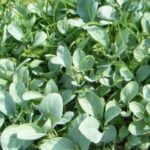Composted manure has long been hailed as a beneficial soil amendment for vegetable gardens, but is it truly safe to use? This article seeks to answer that question, as well as provide valuable insight into the significance of soil amendments for vegetable gardens. Understanding the importance of enriching soil fertility and structure is key to maximizing the growth and health of our plants.
Soil amendments play a crucial role in creating optimal growing conditions for vegetables. They improve soil fertility, promote nutrient availability, enhance drainage, and aid in maintaining proper soil pH levels. Composted manure is one such amendment that has gained popularity among gardeners due to its numerous benefits. Not only does it enrich the soil with essential nutrients like nitrogen, phosphorus, and potassium, but it also improves the texture of compacted or clay soils, allowing better root penetration and water retention.
However, safety concerns may arise when considering the usage of composted manure in vegetable gardens. The potential presence of harmful pathogens can be worrisome, especially if consumed through raw or improperly washed vegetables.
In this article, we will address these concerns head-on and discuss ways to mitigate any risks associated with composted manure usage. By understanding proper composting techniques and conducting necessary tests for safety assurance, we can harness the power of composted manure while keeping our vegetable gardens healthy and thriving.
Stay tuned as we unveil the benefits of using composted manure in vegetable gardens and delve deeper into the safety considerations surrounding its usage. With proper knowledge and practices in place, you can confidently incorporate this natural fertilizer into your gardening routine for improved yields and robust plant growth. Let’s dig deep into this fascinating topic and unlock the secrets behind successful vegetable gardening with composted manure.
Unveiling the Benefits of Composted Manure
Promotes Soil Structure and Texture
Composted manure offers numerous benefits when used in vegetable gardens. One of the key advantages is its ability to promote soil structure and texture. When composted manure is incorporated into the soil, it helps to create a crumbly and well-draining texture. This allows for better water infiltration and root penetration, leading to healthier plant growth. Moreover, the organic matter in composted manure helps to improve soil aggregation, reducing issues such as compaction and erosion.
Enhances Drainage and Nutrient Availability
In addition to improving soil structure, composted manure also enhances drainage in vegetable gardens. The presence of organic matter in the compost helps to increase the porosity of the soil, allowing excess water to drain away more efficiently. This is especially beneficial during heavy rainfall or periods of excessive irrigation, as it prevents waterlogging and root rot.
Furthermore, composted manure serves as a valuable source of essential nutrients for vegetable plants. As it decomposes, the organic matter releases nutrients into the soil, making them available for plant uptake. These nutrients include nitrogen (N), phosphorus (P), potassium (K), as well as micronutrients like calcium (Ca) and magnesium (Mg). By enriching the soil with these vital elements, composted manure helps to support healthy plant growth and maximize yields.
Additional Benefits
Aside from promoting soil structure and enhancing drainage and nutrient availability, composted manure has other notable benefits for vegetable gardens. It can improve moisture retention in sandy soils by increasing their water-holding capacity. Composted manure also encourages beneficial microbial activity in the soil, fostering a diverse ecosystem that contributes to overall soil health.
Moreover, using composted manure can help reduce reliance on synthetic fertilizers by providing a natural alternative that replenishes nutrient levels over time. This not only benefits the environment but also reduces costs for gardeners in the long run. Additionally, composted manure aids in weed suppression, as it acts as a natural mulch that inhibits weed seed germination and growth.
In summary, incorporating composted manure into vegetable gardens brings numerous benefits. From improving soil structure and drainage to enhancing nutrient availability and supporting beneficial microbial activity, composted manure helps create a thriving environment for healthy and productive vegetable plants.
Is Composted Manure Safe for Vegetable Gardens?
Understanding the importance of using soil amendments in vegetable gardens is crucial for achieving successful and healthy yields. One popular and effective soil amendment is composted manure. Composted manure not only enriches the soil fertility but also improves its texture, making it a valuable resource for vegetable gardeners.
The benefits of using composted manure in vegetable gardens are numerous. Firstly, it helps promote soil structure by enhancing the aggregation of particles and reducing compaction. This leads to improved root development and better water infiltration, which ultimately results in healthier plants. Secondly, composted manure enhances drainage in the soil, preventing waterlogging and ensuring proper oxygen flow to plant roots. Lastly, composted manure increases nutrient availability by slowly releasing essential macronutrients like nitrogen, phosphorus, and potassium as well as micronutrients.
However, a common concern among gardeners is whether using composted manure is safe for growing vegetables. It’s important to address this issue to ensure that any potential risks are mitigated. There is a possibility of harmful pathogens being present in untreated or improperly composted manure which may pose health hazards to humans when consumed through contaminated crops. The good news is that these risks can be significantly reduced by following proper composting techniques.
To safely produce composted manure for vegetable gardens, certain guidelines should be followed during the composting process. These include maintaining a specific temperature range within the pile to kill off pathogens (typically between 130-150°F), monitoring levels of moisture and oxygen, and turning the pile regularly to distribute heat evenly. By adhering to these practices, potential pathogens can be effectively reduced.
Testing composted manure before using it in vegetable gardens is another important step in ensuring safety. There are two main testing methods available: laboratory analysis and home DIY tests. Laboratory analysis involves sending a sample of your composted manure to a professional lab for evaluation of nutrient content and potential pathogens. On the other hand, home DIY tests use simple kits or tools to assess compost quality, such as measuring pH levels or examining the presence of harmful bacteria.
By understanding the safety concerns surrounding composted manure and taking appropriate measures to mitigate the risks, vegetable gardeners can confidently utilize this valuable soil amendment in their gardens. Properly incorporating composted manure into vegetable garden beds is essential for achieving optimal results. This can be done by following recommended application rates, timing, and methods, such as top-dressing or incorporating during bed preparation.
While composted manure is a highly beneficial soil amendment option for vegetable gardens, it’s important to note that there are alternatives available as well. Worm castings, peat moss, and green manures are some examples of alternative soil amendments that can be used. Each option has its own pros and cons in terms of nutrient content, availability, and environmental impact.
Composting Techniques for Safe Manure Compost
Composting manure is an effective way to transform raw animal waste into a safe and nutrient-rich soil amendment for vegetable gardens. Proper composting techniques are crucial to ensure that harmful pathogens are eliminated during the process. This section will provide detailed instructions on how to compost manure safely for vegetable gardens.
Temperature control is a critical factor in the composting process. The pile should reach and maintain temperatures between 130°F and 150°F (54°C to 66°C) for at least three days. These temperatures are necessary to kill pathogens and weed seeds that may be present in the raw manure. Using a compost thermometer, regularly monitor the temperature of the pile throughout the composting process.
Turning the compost pile is another essential step in reducing pathogen risks. It helps promote oxygen flow, which encourages the growth of beneficial bacteria and speeds up decomposition. Turn the pile every two weeks, moving material from the outer edges of the heap to its center. This practice ensures that all components of the pile receive adequate heat, oxygen, and moisture for effective pathogen reduction.
| Composting Techniques | Description |
|---|---|
| Temperature control | Maintain temperatures between 130°F and 150°F (54°C to 66°C) for at least three days. |
| Turning the pile | Turn every two weeks, moving material from the outer edges to center for even decomposition. |
By following these composting techniques, you can ensure that your manure compost is safe for use in vegetable gardens. The high temperatures achieved during the composting process will effectively kill harmful pathogens, making the final product safe for your plants and soil. With proper composting, you can harness the nutrient benefits of manure while minimizing potential risks.
Testing Composted Manure
The Significance of Testing Composted Manure
Before using composted manure in your vegetable garden, it is crucial to test its safety. Testing composted manure helps ensure that there are no harmful pathogens or contaminants present that could potentially pose a risk to you or your plants. While composting generally reduces the presence of pathogens, it is still essential to take precautions by testing the final product.
Recommended Testing Methods
There are two primary methods for testing composted manure: laboratory analysis and home DIY tests. Laboratory analysis involves sending a sample of the composted manure to a specialized facility for testing. The laboratory will analyze the sample for any potential pathogens, heavy metals, or other contaminants. This method provides accurate and comprehensive results but may be more time-consuming and costly.
For those who prefer an at-home option, there are several DIY tests available on the market. These tests typically measure certain aspects of the composted manure, such as pH levels, nutrient content, and microbial activity. While not as precise as lab analysis, these DIY tests can still provide valuable information about the quality and safety of the compost.
Interpreting Test Results
Once you receive the results from either a laboratory analysis or a DIY test, it is crucial to interpret them correctly. Look for indications of any potential issues like high levels of heavy metals or pathogenic bacteria. It is also helpful to compare the test results with recommended guidelines provided by agricultural extension services or reputable sources in your region.
If the test results raise concerns about safety or indicate significant imbalances in nutrient levels, it may be necessary to reconsider using that specific batch of composted manure. It is always better to err on the side of caution when it comes to introducing potentially harmful material into your vegetable garden.
By testing composted manure before usage, you can ensure that it is safe and suitable for your vegetable garden. This step adds an extra layer of protection for both you and your plants, ensuring that the composted manure will provide the intended benefits without any potential risks.
Using Composted Manure in Vegetable Gardens
When it comes to using composted manure in vegetable gardens, following best practices is essential to ensure optimal results and minimize any potential risks. Here are some practical tips for incorporating composted manure into your vegetable garden beds:
- Proper Application Rates: It is important to apply composted manure at the correct rates to avoid overloading the soil with nutrients. The recommended application rate is usually around 1-2 inches of compost per year. This can be spread evenly over the entire garden bed or concentrated in areas where plants require more fertility.
- Timing: For annual vegetables, it’s best to incorporate composted manure into the soil before planting, during bed preparation. This allows sufficient time for the nutrients to become available to plants as they grow. Perennial vegetables may also benefit from a top-dressing of composted manure every few years.
- Method: There are different methods of incorporating composted manure into vegetable garden beds. One common approach is to mix it thoroughly with the existing soil using a garden fork or tiller. Alternatively, you can apply a layer of composted manure on top of the soil and allow earthworms and other organisms to naturally incorporate it over time.
| Best Practices | Description |
|---|---|
| Proper Application Rates | Apply 1-2 inches of compost per year; spread evenly or concentrate based on plant needs |
| Timing | Incorporate before planting for annual vegetables; top-dress every few years for perennials |
| Method | Mix thoroughly with existing soil or apply as a top-dressing for natural incorporation |
By following these best practices, you can effectively utilize composted manure in your vegetable garden to improve soil fertility, enhance nutrient availability, and promote healthier plant growth. Remember to always source high-quality composted manure from reputable suppliers or produce it yourself using proper techniques.
Alternative Soil Amendments for Vegetable Gardens
While composted manure is a highly beneficial soil amendment for vegetable gardens, there are also alternative options available for enriching soil fertility and texture. These alternatives can be used either in combination with composted manure or as stand-alone amendments depending on the specific needs of your garden.
One popular alternative to composted manure is worm castings. Worm castings, also known as vermicompost, are rich in essential nutrients and beneficial microorganisms. Similar to composted manure, worm castings improve soil structure, increase nutrient availability, and enhance water retention. Many gardeners prefer worm castings because they have a less noticeable odor compared to composted manure and are easier to apply since they do not need to be fully decomposed.
Another option for enhancing the fertility of your vegetable garden is peat moss. Peat moss is an organic material that improves moisture retention while promoting proper drainage in the soil. It has a slightly acidic pH, making it beneficial for acid-loving plants such as tomatoes or blueberries. However, it is important to note that peat moss is not a sustainable resource and can contribute to the depletion of peat bogs if not used responsibly.
Green manures or cover crops are another alternative worth considering. These are plants grown specifically to improve soil health rather than harvesting for food production. Popular green manures include legumes like clover or alfalfa, which fix nitrogen into the soil, and grasses like rye or oats that add organic matter when tilled under before flowering. Green manures help control erosion, suppress weeds, increase organic matter content, and contribute nutrients back into the soil when they decompose.
It’s important to weigh the pros and cons of each alternative soil amendment option and consider the specific needs of your vegetable garden when choosing which one(s) to use. Some gardeners may even choose to combine different amendments based on their unique soil conditions and plant requirements. Experimentation and observation will help you determine which alternative soil amendments work best for your specific garden, ensuring a healthy and bountiful harvest season after season.
Frequently Asked Questions
In this section, we will address some of the commonly asked questions regarding the use of composted manure in vegetable gardens. By providing answers to these queries, gardeners can gain a better understanding of how to effectively utilize composted manure for their plants.
Does composted manure smell?
Composted manure should have a pleasant earthy smell similar to rich soil. The decomposition process during composting helps eliminate strong odors. However, if your composted manure has a foul or strong smell, it may indicate that the material has not fully decomposed or that it is not properly aerated. In such cases, it is recommended to avoid using the compost until it has mellowed further.
How long does it take for composted manure to break down?
The time required for composted manure to fully break down varies depending on several factors, including temperature, moisture levels, and the types of materials used. Generally, it takes around 6 months to 1 year for composted manure to be fully matured and ready for use in vegetable gardens. Regular turning of the pile and ensuring adequate heat during the composting process can help expedite decomposition.
Can I use fresh manure instead of composted manure?
Fresh manure contains high levels of ammonia and potentially harmful pathogens that can damage plants or pose health risks if consumed in raw produce. It is not recommended to use fresh manure directly on vegetable gardens without proper composting first. Composting breaks down organic matter and allows harmful pathogens and heat-sensitive weed seeds to be destroyed through heat generated during decomposition.
How often should I apply composted manure in my vegetable garden?
The frequency of applying composted manure depends on the specific needs of your plants and the quality of your soil. As a general guideline, it is recommended to apply a 1-2 inch layer of composted manure to garden beds once or twice a year. Spring and fall are typical times for application. However, regular soil testing can provide valuable insights into the nutrient levels and pH balance of your soil, helping you determine the appropriate frequency of compost application.
By addressing these frequently asked questions, gardeners can confidently navigate the use of composted manure in their vegetable gardens. With proper understanding and implementation, composted manure can be a valuable soil amendment that promotes healthy plant growth and improves overall garden productivity.
Conclusion
In conclusion, composted manure can be a safe and effective soil amendment for vegetable gardens. Throughout this article, we have discussed the benefits of using composted manure, as well as addressed concerns regarding its safety. We have also provided guidelines on how to properly compost manure for optimal pathogen reduction and explained the importance of testing composted manure before use.
By harnessing the power of composted manure in your vegetable garden, you can greatly enhance soil fertility and texture. Composted manure promotes better soil structure, improves drainage, and increases nutrient availability for your plants. These advantages can lead to improved yields and healthier plants in your garden.
While there are potential risks associated with using composted manure, proper composting techniques can greatly reduce the presence of harmful pathogens. By controlling temperature and regularly turning the pile, you can effectively lower the risk of contamination. Additionally, testing the final product for pathogens is crucial before using it in your vegetable garden.
Incorporating composted manure into your vegetable garden is a sustainable and cost-effective way to enrich your soil. Start by following our recommended application rates and methods during bed preparation or as top-dressing throughout the growing season. However, if you prefer alternatives to composted manure, options like worm castings, peat moss, or green manures can also be considered.
Frequently Asked Questions
What vegetables don t like composted manure?
Some vegetables may not thrive when composted manure is used as a fertilizer. For instance, root vegetables like carrots and beets tend to develop misshapen or forked roots in soil enriched with too much nitrogen, which is often found in composted manure.
Leafy greens such as lettuce and spinach can also suffer from excessive nitrogen levels, leading to an overgrowth of foliage at the expense of producing well-formed heads or leaves. However, it’s worth noting that the impact of composted manure can vary depending on factors such as the composition of the manure and how it was processed.
Can you use composted manure for vegetables?
Yes, composted manure can be used for vegetables as a nutrient-rich organic fertilizer. It helps improve soil structure, enhances water retention capabilities, and provides essential nutrients for plant growth. Composted manure breaks down slowly, releasing its nutrients over time and offering a sustainable source of nourishment for vegetables throughout their growing season.
How do you use composted manure in a vegetable garden?
To use composted manure in a vegetable garden, first ensure that it has been properly composted to eliminate any potential pathogens or weed seeds. Then, spread a layer of composted manure on top of the soil before planting your vegetables. Incorporate the manure into the top few inches of soil using a fork or tiller, ensuring an even distribution throughout the garden bed.
The nutrients from the composted manure will gradually be absorbed by plant roots as they grow, promoting healthy growth and increasing productivity. However, it’s important not to overdo it – follow recommended application rates to avoid an excessive buildup of nutrients that could harm plants or cause imbalances in the ecosystem. Additionally, remember to rotate crops each season to prevent nutrient depletion and maintain optimal soil health in your vegetable garden.

If you’re looking to get into vegetable gardening, or are just looking for some tips on how to make your current garden better, then you’ve come to the right place! My name is Ethel and I have been gardening for years. In this blog, I’m going to share with you some of my best tips on how to create a successful vegetable garden.





